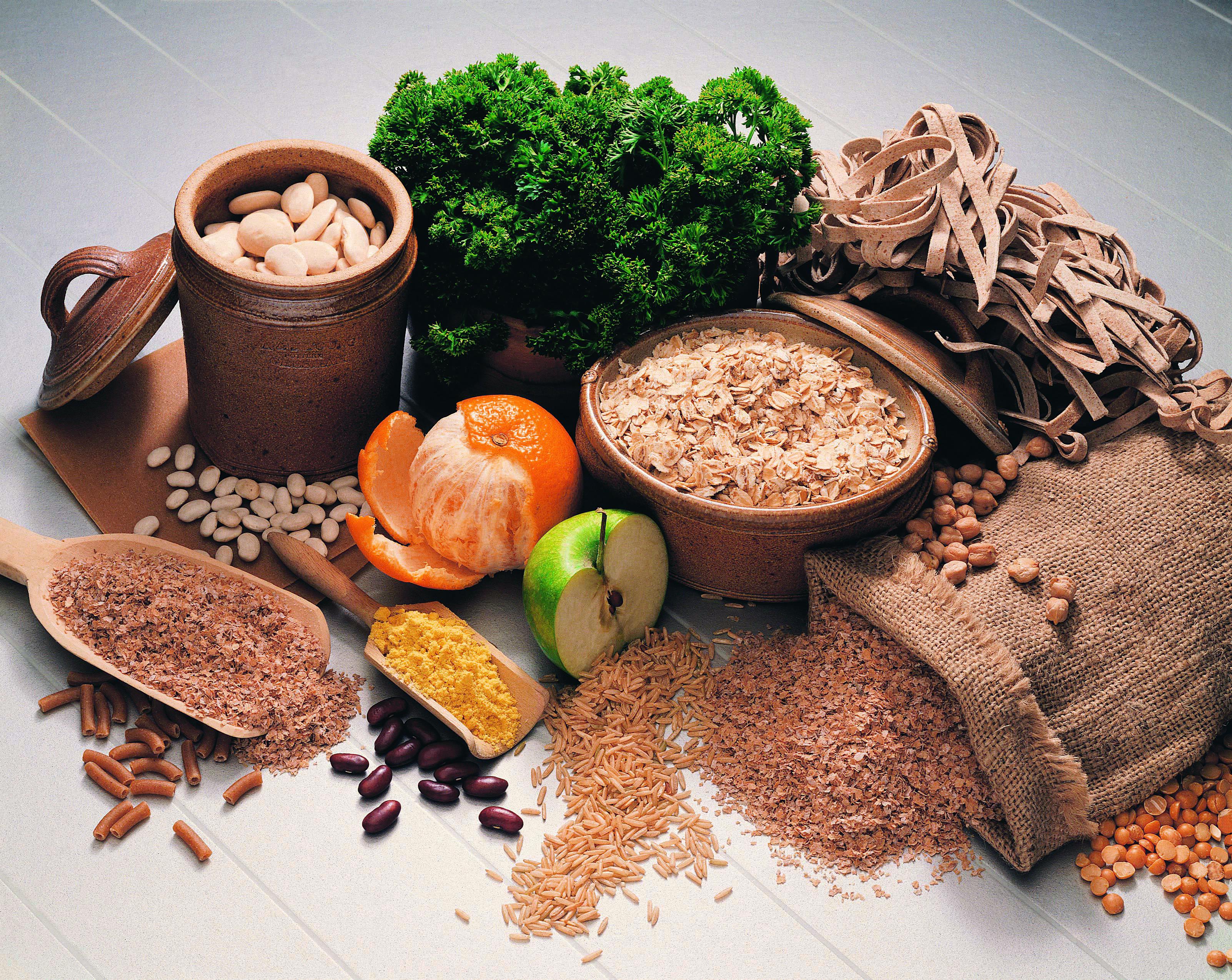When you’re with a partner you’re crazy about and you want to get it on all of the time, it can be so frustrating to experience vaginal dryness. Your partner might take it personally, and of course, it can be painful for you. Dryness can occur at any age, but is most prevalent in post-menopausal women. It can cause painful sex and even urinary tract infections. So what’s the cause of the discomfort?
“Vaginal dryness has many causes, most commonly menopause, certain medications and medical treatments, various medical conditions (e.g. hypertension and diabetes) and in the postpartum period,” says Denise Asafu-Adjei MD, MPH. “Estrogen is the hormone responsible for vaginal lubrication and healthy vaginal tissue. Vaginal lubrication is ultrafiltrated blood and is dependent on the synthesis and availability of nitric oxide for vasodilation (dilation of blood vessels) and enhanced blood flow.”
Eating foods that have similar effects to estrogen and those that help to improve blood flow are especially great ways to naturally combat vaginal dryness. Of course there are lubes and certain medications you can take for extra moisture, but if you prefer to fix things the natural way, you can eat these foods for better lubrication down there.
Here are 15 tasty foods that keep your vagina happy and healthy:

Source: Pete Ridge / Getty
1. Olive oil
Olive oil is loaded with healthy fats that hydrate your skin and keep your food tasty, but it also helps lubricate your insides from your stomach to your vagina, to keep everything moving and working well.

Source: Veena Nair / Getty
2. Flaxseeds
Flaxseeds are often recommended to women during menopause because they ward off health problems like cancer, cardiovascular disease and diabetes. These seeds don’t have much taste, so you’ll want to toss them on your cereal, oatmeal, or yogurt. “These power foods help with vaginal lubrication through its major component of the phytoestrogen lignan, which acts similarly to estrogen on your vaginal tissues,” says Asafu-Adjei. “Flax seeds also contain omega-3 fatty acids that have anti-inflammatory properties that aid in minimizing heart disease, high cholesterol and even osteoporosis.

Source: Adam Gault / Getty
3. Soybeans
These aren’t just for your favorite lotions and creams. Toss these into your salad, or keep them in your car as a snack because they’ll keep your skin supple and everything else too. “Soybeans contain phytoestrogen isoflavone that helps with vaginal lubrication in a major way,” says Asafu-Adjei. “It’s also packed with protein and is a good source of calcium iron and magnesium. It is found in many products in the form of milk, tofu, and miso.”

Source: Kyoko Hasegawa PHOTOGRAPHY / Getty
4. Leafy green vegetables
Foods like spinach, kale, and collard greens are rich in nitrates, which your body converts into nitric oxide, a vasodilator needed to facilitate good blood flow, says Asafu-Adjei. They also contain omega-3 fatty acids which help to promote vasodilation, the dilatation of blood vessels, which decreases blood pressures.

Source: Eliane Filho / EyeEm / Getty
5. Shrimp
Shrimp is a fun food for a date night that you can hand-feed your partner, plus it’s another shellfish that’s high in the all-mighty vitamin E. But before you dive in, understand that shrimp has high cholesterol content. In fact, it has 85% more cholesterol than other types of seafood. But, don’t fret, eat shrimp in moderation and you should reap the benefits of a lubricated vagina and a healthy heart and brain.

Source: Ivan / Getty
6. Oysters
If shrimp isn’t your thing, grab some oysters. These foods are high in zinc, which is believed to fight vaginal dryness. Oysters also contain fatty acids that promote vasodilation through the relaxation of smooth muscle cells and thus improve vaginal lubrication. eicosapentaenoic acid (EPA), docosahexaenoic acid (DHA) fatty acids are commonly found in fish, such as salmon, mackerel, sardine, cod, and oysters.

Source: Stockbyte / Getty
7. Whole grains
Aim for high-fiber whole grains like quinoa and brown rice. These types of foods keep your blood sugar levels even, which in turn can keep hormones in balance. Hormonal imbalance is often a cause of vaginal dryness.

Source: fcafotodigital / Getty
8. Nuts
Nuts, particularly pistachios, walnuts, and almonds are loaded with both essential fatty acids and vitamin E that aid in developing strong vaginal walls and muscles.

Source: Janet Hudson / Getty
9. Tofu
Soy products like tofu mimic what estrogen does in the body, and can boost lubrication. Note that tofu can be purchased in a variety of forms: extra firm, firm, soft, or silken. Firm and extra-firm tofu is firm and is great for grilling; soft tofu is perfect for soups and salads, and silken tofu is great for dips and even smoothies.

Source: natassapnevmatikatou / Getty
10. Okra
Okra is the vagina’s best-kept secret. If you eat okra, the inside of your va-jay-jay will be as slippery as the inside of the vegetable. Sorry for the visual, but you get the point.
And, if you don’t like the feel of traditional okra, opt to drink okra water or mixing okra peels and powdered seeds in your favorite beverage.

Source: Thomas Young / Getty
11. Edamame
Order a bowl of these at sushi night because they’re another soy-rich food that mimics estrogen. Studies have found that women experience more enjoyable sex immediately after eating soy foods.
Need a recipe to make edamame taste a bit better? Boil the edamame, then drain and set aside. In a large skillet, heat two tablespoons olive oil, salt and pepper to your desired taste. Toss the seasonings into the skillet with the edamame and brown for a few minutes. Enjoy!

Source: Valentyn Volkov / Getty
12. Avocados
Avocados and olives are tasty alternatives to saturated fats and have lubricating ingredients like vitamin E to keep your skin and insides hydrated and elastic. Try avocados on scrambled eggs, toast, salads and soups for a delicious treat. And, if you really love the taste, add paprika, cayenne pepper, balsamic vinegar to a ripe avocado and enjoy.

Source: andresr / Getty
13. Apples
“An apple a day keeps the vagina saying yay,” says Asafu-Adjei. “This fruit contains phytoestrogen phloridzin, which stimulates vaginal blood flow and promotes vaginal lubrication.” Also, a study published in the Archives of Gynecology and Obstetrics found that women who eat apples more than once a day had higher levels of sexual function compared to those who ate apples less than once a day. Eat up, ladies!

Source: RapidEye / Getty
14. Water
Water is not food, but it’s very important for vaginal lubrication. Not drinking enough water can reduce your supplies of cervical mucus, and leave you feeling dry down there. The U.S. National Academies of Sciences, Engineering, and Medicine determined that an adequate daily fluid intake is about 11.5 cups (2.7 liters) of fluids a day for women. This may seem like a lot, but keep in mind about 20% of daily fluid intake usually comes from food.

Source: Christine Glade / Getty
15. Red clover
This member of the legume family is a rich source of phytoestrogens formononetin, biochanin A, daidzein, and genistein that offer a multitude of benefits. “A systematic review and meta-analysis in 2016 by Ghazanfarpour et al showed significant subjective improvement in vaginal dryness and other symptoms in perimenopausal women,” says Asafu-Adjei.


